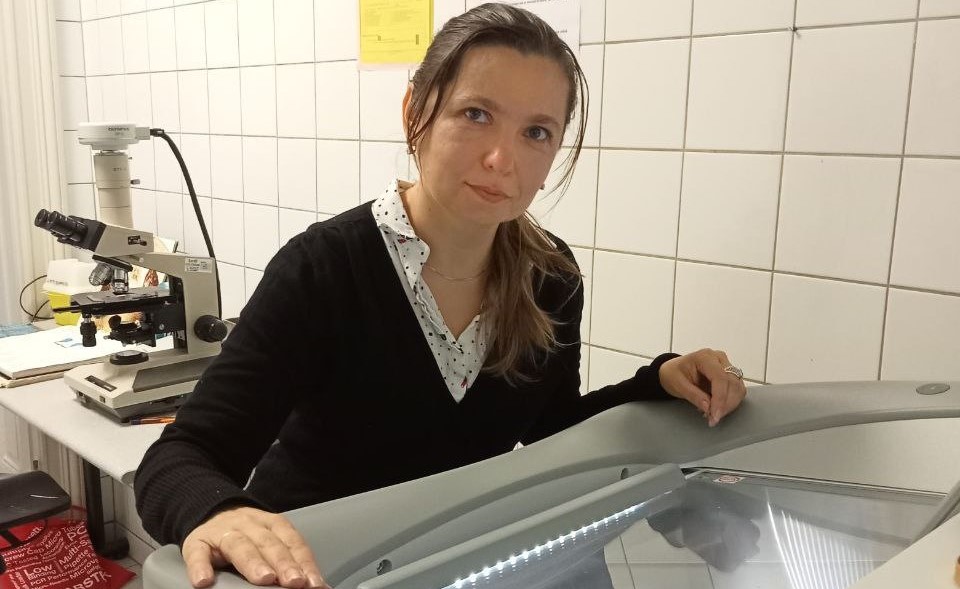Could you tell us about your position and your speciality at the University of Kiev?
In Ukraine I was professor of histology, cytology, and embryology, Doctor of Medical Sciences at the Bogomolets National Medical University, Kiev.
What are your main research topics?
My scientific role in the department of ‘Histology, Cytology and Embryology’ was to establish anatomical and histological methods based on optical light- and electron-microscopy for histological investigation of organs containing nervous tissues: nerve trunks, spinal ganglions, spinal cord.
During my PhD research, I have used neuro-histological methods, particularly, toluidine blue staining for demithin sections and nerve impregnation, with optical light- and electron microscopy for studying nerve regenerations. During my Postdoctoral research, I have worked with cultures of neural cells, used lectin histochemistry for light microscopy, and electron microscopy methods for studying toxic influence of mercury on central and peripheral nervous system.
Did you have any contact with the University of Strasbourg before?
Because of my involving in neurohistology research I am a member of the FENS society, which sent me information about the PAUSE program after the Russian invasion in Ukraine. When armed actions began on the territory where my family was located and the question of my child's safety arose, we left for Strasbourg. This is where I met a great team at the Multimodal Imaging Team (IMIS) at ICube.
What is your current research project at ICube about?
I integrated an on-going research project aiming at characterizing the microstructure of prenatal human brain by MRI and histology in order to delineate imaging markers for brain lesions in fetuses bearing genetic mutations. Additionally, we are collaborating on other on-going research projects in the IMIS team, ICube and at the Institut d’histologie involving histological characterization of tissues (e.g., lung organoids characterization – Dr. Julien Demiselle, PhD student; characterization of the motor innervation of lateral pterygoid muscle – Dr. Edouard EVRARD, CHU de Besançon; FRM project – FEMINAD to study mouse brain tissue un an Alzheimer mouse model, Dr. Chantal Mathis at LNCA and Dr. Laura Harsan at IMIS/ICube as well as on the PAINFACT EU project within IMIS team at ICube).
Do you manage to keep in touch with your lab in Kiev? Does the university continue to work?
Bogomolets National Medical University is my alma mother. I got an education there, became a PHD and HDR, and eventually a professor. Of course, I continue to cooperate and help in ways available to me. For example, even in the face of constant rocket attacks, we continue to work on creating a textbook on histology for English-speaking students.
You are both a student and a researcher at the university of Strasbourg, how do you manage to conciliate all schedules?
Since I did not know French and I wanted to be fully integrated at a social and scientific level, the university provided me with an opportunity to attend intensive French courses. Of course, in order to do my job and attend class, it takes a lot of time and efforts. There is very little time left to communicate with my daughter, but she supports me. I consider it very important for interacting with my colleagues and improving my performances at work. And yes, French is very beautiful!
I would also like to emphasize that I am very lucky to have received such support from the university leadership and got into a friendly and experienced team. I hope that we will continue to cooperate when difficult times are in the past.

